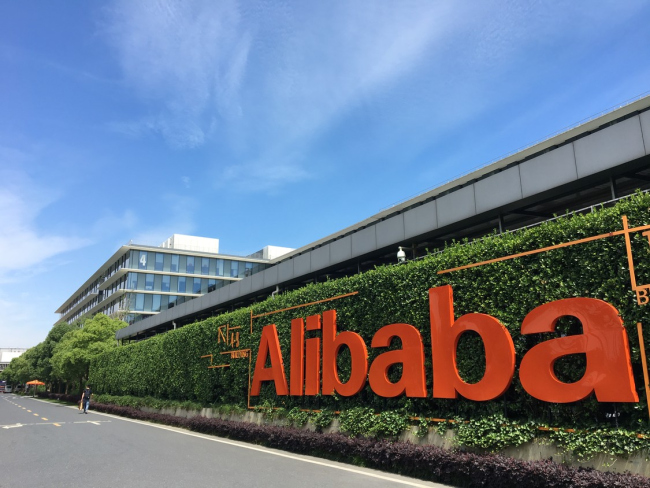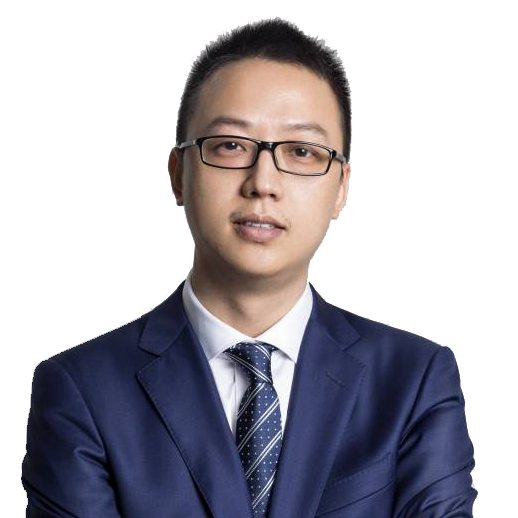Alibaba's Leadership Reshuffle Signals Urgency in Traditional E-commerce, CEO Wu Yongming Takes on Heavier Responsibilities
-
On December 20, Alibaba announced that Wu Yongming, CEO of Alibaba Group and Chairman of Taotian Group, will also serve as CEO of Taotian Group. From now on, Wu Yongming will concurrently hold the CEO positions of Alibaba Group, Taotian Group, and Alibaba Cloud Intelligence Group, earning him the title of 'Ironman Triathlon'.
On the same day, Joseph Tsai, Chairman of Alibaba Group's Board of Directors, announced this appointment through a company-wide letter titled The Only Constant Is Change, Let’s Reignite the Spirit of Starting Anew! In the letter, Tsai expressed confidence that Alibaba would undergo a transformation through this round of changes.

In 2023, Alibaba has seen frequent changes, with its overall strategy continuously evolving. Image source: Company website
Looking back to March at the beginning of the year, Daniel Zhang, then Chairman and CEO of Alibaba Group, announced the launch of the '1+6+N' organizational restructuring. In his company-wide letter, Zhang's key themes were also 'change' and 'entrepreneurship': 'Those who do not embrace change will become rigid, and those who do not change themselves will be defeated by the times.'
Throughout 2023, Alibaba underwent frequent changes and strategic shifts, with its unwavering commitment to 're-entrepreneurship' being the only constant.
Beyond this, Alibaba's transformation carries a sense of urgency. As of December 20, Alibaba's market capitalization in the U.S. stood at $192.002 billion, while Pinduoduo's reached $199.408 billion. Being overtaken by this rising competitor has left Alibaba no choice but to keep moving forward.
As one of the youngest among Alibaba's '18 Arhats,' Wu Yongming likely never imagined when he founded Vision Plus Capital in 2015 to invest in other startups that he would one day return to Alibaba to shoulder such significant responsibilities in its re-entrepreneurship journey.
Starting a business is never easy. Can the now colossal Alibaba succeed in its re-entrepreneurship efforts, and where will it head next?
Has Dai Shan Fulfilled Her Mission?
In the letter, Joe Tsai mentioned Dai Shan.
He mentioned that Dai Shan, as one of Alibaba's 18 founding members, has been working on the company's front lines for over two decades, dedicating tremendous effort to its establishment and growth. In Taotian Group's comprehensive return to users, the internet, and the 'Universal Taobao' concept, Dai Shan has accomplished her mission.
At the end of 2021, Daniel Zhang, then Chairman and CEO of Alibaba, announced in an internal letter that the company would further upgrade its 'diversified governance' system amid major cyclical changes.
This significant restructuring involved Alibaba's core business segments.
As Group President, Dai Shan was assigned to oversee 'Big Taobao' (including Taobao, Tmall, and Alimama), the B2C retail business group, Taocaicai, Taote, and 1688, collectively forming the 'China Digital Commerce Segment.'
Prior to this adjustment, Dai Shan was responsible for Alibaba Group's B-class business group and Freshippo (Hema) business group, while also coordinating the group's agricultural-related businesses. The MMC business group, established on March 1 of that year, was also under her leadership at the time. Before moving to frontline operations, Dai Shan primarily handled marketing, human resources, customer service, and other related businesses.
Since then, Alibaba has adopted a structure where 'Dai Shan manages domestic affairs, while Jiang Fan oversees international operations.'
On December 16, 2021, Alibaba's Investor Day event was held online, marking Dai Shan's first public appearance after taking charge of the 'Taobao-Tmall ecosystem.' During the presentation on China's retail market business, Alibaba emphasized the concept of a 'multi-platform strategy,' identifying it as a key driver for growth in its 'China Digital Commerce' segment.
Alibaba noted that, in addition to the Taobao app, platforms like Idle Fish (Xianyu) and Taobao Deals (Taote) contribute differentiated supply to meet diverse consumer demands. Currently, Idle Fish hosts around 6 million non-Taobao professional sellers, offering unique products—especially long-tail items such as collectibles, Hanfu (traditional Chinese clothing), and second-hand musical instruments—to better cater to varied consumer needs.
In January 2022, Dai Shan announced via an internal letter the full integration of Taobao and Tmall.
The transformation is far from over.
On March 28 this year, shortly after announcing Alibaba's "1+6+N" organizational structure, the National Business Daily confirmed with Alibaba on April 14 that the Taobao Tmall Business Group had officially begun operating under the new organizational framework.
It was reported that Taobao Tmall's structure continues Dai Shan's consumer experience-centered management philosophy. On the user side, the three major user products—homepage, search, and live streaming—remain unchanged. In terms of industry operations, management and operations continue to be categorized based on industry consumption characteristics and user demand scenarios, with the establishment of three industry development departments. These departments are led by Qigong (Wang Hai), Aowen (Liu Peng), and Yiman (Liu Yiman), respectively, reporting directly to CEO Dai Shan.
Notably, at the time, it was reported that the head of the original Industry Operations Center, Chuixue, was set to leave due to personal reasons.
By May 10, Taobao's 20th anniversary, the newly formed Taotian Group made its first public appearance at the Taobao Tmall 618 Merchant Conference.
As the CEO of Taotian Group, Dai Shan stated that in the era of technological transformations such as generative AI and shifts in consumer behavior, 'new changes' and self-reform are not optional but imperative. She emphasized that looking ahead, Taobao and Tmall have identified three key directions for 'transformation and innovation': upgrading new scenarios, new ecosystems, and new technologies.

The structure of Taobao and Tmall continues Dai Shan's consumer-experience-centric business philosophy. Image source: Company website
She stressed that Taobao will make 'historically massive investments' to help merchants expand their user base. At the same time, Taobao will push forward with a comprehensive content strategy with unprecedented levels of investment.
This year's Double 11, Taotian has joined the low-price competition, publicly stating that its core focus is on offering the 'lowest prices online.' Dai Shan hopes to further clarify the relationship between the platform, merchants, and users. She believes that Taotian will provide full-chain guidance and make maximum investments, while brand merchants will focus more on user operations. This alignment is expected to drive the largest-scale user growth.
Reporters noted that among the three major strategies proposed by Dai Shan for Taotian Group, 'user-first' is the top priority. A key aspect of this strategy is advancing content-driven initiatives to increase user-initiated visits.
At the same time, the internal evaluation standards at Taotian Group have undergone changes.
On November 8, reporters from Daily Economic News learned from Taotian Group that this year's Double 11 will place greater emphasis on how frequently consumers open the Taobao app and their purchase frequency. In addition to average order value and DAC (daily active consumers), order volume has become a new key performance indicator for Taobao and Tmall's transaction growth.
Looking back at Dai Shan's two-year tenure leading Taobao and Tmall, the platforms have indeed undergone significant organizational changes and made progress in content development. With the shift in strategic direction, previously emphasized services like Taote and Taocaicai have seen reduced prominence, while low prices have become a central focus for Taobao and Tmall. It was during Dai Shan's leadership that Taobao's Double 12 shopping festival was renamed "Taobao Year-End Good Price Festival," further reinforcing the public perception of Taobao as a platform for "good prices."
Wu Yongming's 'Ironman Triathlon'
Before officially taking over as CEO of Alibaba Group, Wu Yongming's public image was relatively obscure, which is closely tied to his personal career trajectory.
Records show that Wu Yongming served as Technical Director during Alibaba's early days. In December 2004, he transitioned to become CTO of Alipay. By September 2008, he had become CTO of Taobao, and from October 2011, he took charge of Alibaba Group's search, advertising, and mobile businesses.
In 2015, Wu Yongming ventured into entrepreneurship by founding Yuanjing Capital, a venture capital firm focused on investing in advanced technology, enterprise services, and digital healthcare.
After many years, Wu Yongming, Alibaba's 'Employee No.4' and its first programmer, has truly stepped into the spotlight upon assuming the role of CEO of Alibaba Group.
This was followed by a series of new initiatives.
The '1+6+N' structure was a decision made by former CEO Daniel Zhang before his departure. Previously, a source close to Alibaba told National Business Daily that during the implementation of '1+6+N', personnel from a key department were initially dispersed across various business groups but later all returned to headquarters. 'In this process, some people left, resulting in talent loss,' the source said.
The source revealed to the reporter that Wu Yongming places greater emphasis on the technology division, where personnel have already attracted significant attention. According to the source, some recent changes at Alibaba were deliberately postponed until after Double 11. 'At that time, the focus was on preparing for Double 11, with a commitment to avoid major changes or reforms until after the shopping festival,' the source explained.
Now, Wu Yongming will concurrently serve as CEO of Alibaba Group, Taotian Group, and Alibaba Cloud Intelligence Group – a position of considerable power but also immense pressure, akin to undertaking an 'Ironman Triathlon' of leadership roles.

Wu Yongming, Alibaba's 'Employee No.4' and first programmer. Image source: Corporate website
From Joe Tsai's internal letter, some reasons behind Alibaba's arrangement might be visible.
Joe Tsai mentioned in the letter that to promote efficient strategic coordination and intensive resource allocation in the group's core e-commerce business sectors, Wu Yongming, CEO of Alibaba Group and Chairman of Taobao and Tmall Group, will concurrently serve as CEO of Taobao and Tmall Group.
He also stated that since Wu Yongming took over as CEO of Alibaba Group three months ago, he has clarified the group's strategic priorities, made decisive choices around core businesses, and comprehensively promoted the reform of rejuvenating the management team. Having Wu Yongming concurrently serve as the top leader of Alibaba Cloud and Taobao and Tmall will help drive Taobao's transformation through technological innovation and ensure unified command and sustained intensive investment in the two strategic priorities of e-commerce and cloud computing.
Hu Qimu, Deputy Secretary-General of the China Digital-Real Integration 50 Forum, analyzed in an interview with Daily Economic News that at the beginning of the year, Alibaba still planned to promote the listing of various businesses such as Alibaba Cloud and Cainiao, aiming to turn the supporting services that previously underpinned its e-commerce platform into separate listed entities. "It's like its legs are getting thicker, not only supporting its torso but also continuing to grow independently."
Although the outside world cannot see Alibaba's internal transformation actions, judging from the changes over the past year, Hu Qimu believes that starting with Daniel Zhang's resignation, Alibaba has been gradually moving toward contraction. "Its strategic shift has been very rapid."
In Hu Qimu's view, the establishment of an asset management company is a clear signal. "For a real enterprise to set up an asset management company, the purpose is very clear." He stated that, generally speaking, asset management companies are established to handle inefficient or ineffective assets. Industry insiders believe that Dai Shan's strength lies in optimizing the allocation of internal resources. Now, with Dai Shan responsible for assisting the group in establishing Alibaba Group's asset management company, it also reflects Alibaba's emphasis on this matter.
However, for now, this is only a speculative possibility, and Alibaba has not taken any substantive action yet.
It is worth mentioning that on December 20, Hema denied the rumors of being sold to the Daily Economic News. Hema stated that this year, it has continued its growth momentum and maintained its store opening speed. In mid-October, Hema initiated a discount reform, further optimizing its supply chain based on the previous "Mountain Moving Price" strategy to provide consumers with high-quality and low-priced products.
In the long run, can Wu Yongming, who holds three CEO positions simultaneously, effectively coordinate these businesses?
Regarding this, Hu Qimu believes that Alibaba has now returned to a state where e-commerce is its main focus. Under strategic contraction, Alibaba needs to concentrate resources to enhance the competitiveness of its e-commerce platform.
"Re-entrepreneurship": A New Story Related to AI?
Since becoming the CEO of Alibaba Group, Wu Yongming has gradually exerted influence on the vast Alibaba ecosystem.
On November 16, Wu Yongming participated in the quarterly earnings analyst call as Alibaba Group's CEO for the first time. At that time, he stated that for core businesses, the company would maintain long-term focus and intensive investment to ensure products continuously evolve with user needs, maintaining long-term vitality and competitiveness. For non-core businesses, various capitalization methods would be employed to realize asset value as soon as possible.
Since assuming the CEO role, Wu has frequently mentioned the term "entrepreneurship." In his inaugural letter to employees, he stated that the most significant variable in the next decade would undoubtedly be the profound transformation across industries brought by AI. "We must reshape user value with the determination of starting anew in the AI era to secure the opportunity to continue serving customers in the next ten years."
From Wu Yongming's perspective, today's Alibaba faces rapidly developing new technologies and changing market expectations. No matter how successful the past has been, the company must turn the page and awaken a startup mentality.
Wu emphasized that businesses aligning with user needs and AI-driven transformation trends would receive top-priority investment. For future-oriented innovative products, the company would adhere to long-termism and make resolute investments, with a three-year evaluation cycle to cultivate new businesses and momentum for Alibaba's future.
Additionally, this time, Wu Yongming specifically highlighted several businesses that previously did not receive much attention, namely 1688, Xianyu, DingTalk, and Quark. He revealed that these strategic innovative businesses will operate as independent subsidiaries organizationally, breaking free from their previous positioning limitations within the group. Alibaba will commit to investing in them over a 3-5 year period.
As a successor with a technical and investment background, these strategic decisions bear Wu Yongming's personal influence to some extent.
Regarding strategic innovation businesses, Hu Qimu believes that Alibaba should not merely revisit businesses like 1688 and Xianyu but needs to introduce some new approaches. However, no further details have been revealed in this regard yet.
The challenge may still lie with Taotian.
According to a recent report by Bain & Company, in the first three quarters of 2023, the market share of interest-based e-commerce platforms increased by over 6 percentage points year-on-year, with Douyin's market size expanding by 1.5 times. In contrast, Taobao/Tmall experienced negative growth, with their market share declining by 4 percentage points, as shown in the report.
Cui Lili, Executive Director of the E-commerce Research Institute at Shanghai University of Finance and Economics, told the National Business Daily that Taotian's competitiveness is being affected by content e-commerce platforms, making it difficult to break through its original framework.
"Previously, Taotian emphasized serving merchants and promoting brands because they were the paying parties. Now, the logic of the broader environment has changed, with e-commerce shifting its focus to practicality and white-label products," said Cui Lili.
In Hu Qimu's view, Taotian needs to tell a new growth story. "It's now a stock market where a zero-sum relationship has formed. If one player grows very fast in this market, it means the remaining players will continuously lose market share," Hu Qimu said. He believes that at this stage, capital will only focus on which player holds the growth potential. "Whoever holds the growth potential wins."
Notably, with Wu Yongming taking charge of both Taotian and Alibaba Cloud, Alibaba's strategic focus on core business development has largely taken shape. Alibaba believes this will help drive Taotian's transformation through technological innovation and ensure unified command and sustained high-intensity investment in its two strategic priorities: e-commerce and cloud computing.
The new story may be related to AI.
Pan Helyn, Co-Director of the Digital Economy and Financial Innovation Research Center at Zhejiang University International Business School, told National Business Daily that as Alibaba returns to integration, it has found a new path - AI e-commerce. In his view, the integration of AI and e-commerce cannot be accomplished by Taotian alone, hence the appointment of a dual-role CEO.
This also highlights that another key business focus should remain cloud computing.
At the end of last month, Wu Yongming made strategic decisions for Alibaba Cloud, establishing an AI-driven, public-cloud-first strategy for the next five years and implementing sweeping adjustments to the business management team.
Against the backdrop of Wu Yongming overseeing both Taotian and Alibaba Cloud, Hu Qimu believes Alibaba may consolidate resources to invest in foundational R&D, "making arrangements for the next 10 years."
In fact, whether in Taotian or Alibaba Cloud, Alibaba maintains relatively stable fundamentals. With correct strategic direction and full commitment, Alibaba's future remains bright.
Regarding Alibaba's future, Pan Helin believes AI is a feasible path. "Technologically, Alibaba has Tongyi Qianwen and Alibaba Cloud, which have already made a start. However, the key challenge in integrating AI with e-commerce lies in application—how to use AI to improve various aspects of online retail. Alibaba needs to absorb knowledge from both technological and user feedback perspectives. In other words, AI-driven e-commerce also requires a gradual approach."
Overall, Alibaba will proceed under Wu Yongming's vision. Upon taking office, he stated that he would firmly implement team rejuvenation, aiming to have post-85s and post-90s serve as the core managers to refresh the business management team within four years.
In the recent company-wide letter, Joe Tsai also mentioned that since Wu Yongming took over as Alibaba Group CEO three months ago, he has comprehensively promoted the reform of management team rejuvenation. "Next, we will fully empower young management teams who have been trained at the grassroots level and have shown potential, creating an innovative environment tailored for them," Tsai said.
Clearly, in the near future, some management reshuffles will occur at Alibaba, and new stories will unfold.
